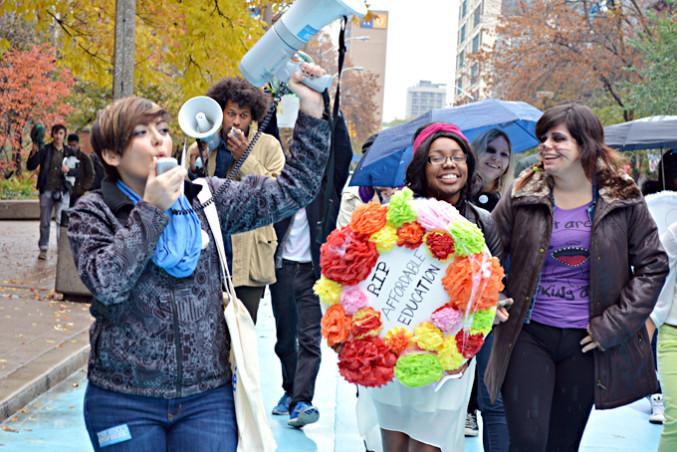By Keith Capstick
All Ryerson students pay a fee each semester for their Ryerson Students’ Union (RSU) memberships, but few know where their money is going.
Students paid $65.43 in the fall to be represented by the RSU. They’re responsible for organizing things like dental benefits, discounted metro passes, and providing students with updated technology around campus.
“I know they say they’re going to do a lot of things around campus, but I don’t know if they actually happen,” said Justine Glover, a second-year food and nutrition student.
The RSU is a student organization that includes all graduate and undergraduate students and is led by an executive of representatives elected by students. Its purpose is to “fight for student rights” and to “build [a] community on campus through events.”
Students are collectively aware that the RSU claims to be a driving force behind campus events and student rights, but are troubled by the lack of tangible evidence to support their claims to be “the hub of activity on campus.”
“Do you have any background on them? I don’t really know what they do, all I know is they take my money,” said Izzy Ahrbeck, a first-year radio and television arts student.
According to their 2013 proposed budget, RSU executive members make $28,250 each and the total expenses given to members reach nearly $35,000 each.
“I don’t really know anything or who they are. I’ve been told they get paid,” said Hannah Macrae, a first-year business marketing student.
In reaction to comments like Macrae’s, RSU president Melissa Palermo said that “it’s important for students to feel like their voice is heard through their students’ union and that they see themselves represented.” Palermo says that the RSU will continue to be “an independent voice that advocates for students.”
After hearing Palermo’s reaction to their words, students were given a chance to address the statement from their student union president.
“Her words are the quintessential reason for students’ feelings about the RSU, she didn’t even address us at all,” said Sydney Tyber, a graduate literature student.
“I just don’t think they’re creating a conversation with the students,” Glover said.
Palermo says that the RSU attempts to create this conversation by “get[ting] in touch with students through social media, especially Twitter, Instagram and Facebook.”
But many students still don’t feel like they are part of a collective conversation with the RSU.
“I’ve seen them on Twitter and I really feel like they’re not appealing to everyone. I just don’t feel like they care about me or what I want,” Glover said.
[youtube]https://www.youtube.com/watch?v=nFFe2N3wJoI&list=UUsC_SCgA56zYWgYwpcd6cyA[/youtube]










arby
This is what they’re doing http://thevarsity.ca/2014/03/13/student-union-executives-from-york-and-ryerson-campaigning-for-u-of-t-voice/